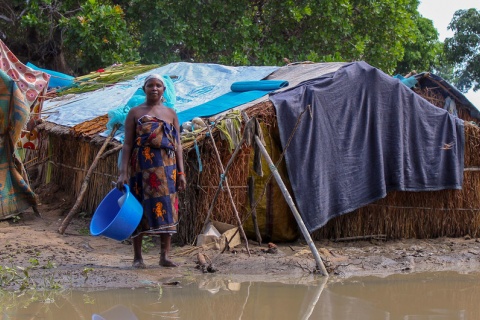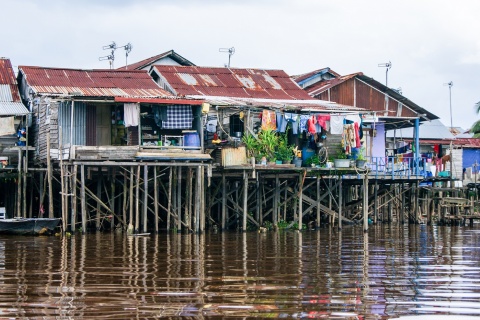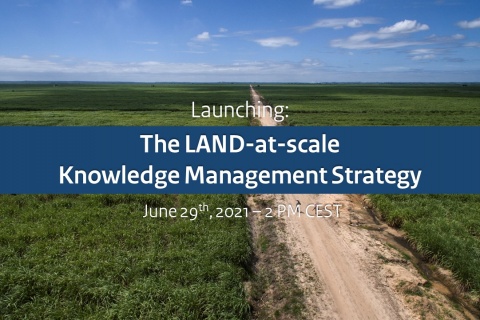Discover hidden stories and unheard voices on land governance issues from around the world. This is where the Land Portal community shares activities, experiences, challenges and successes.
 Follow our
Follow our
Sustainable Development Goals
Blog Series!
Interested in land corruption?
Follow our Land & Corruption Blog Series
for in-depth perspectives from the experts.
Issues
Geographical focus
Urban Green Spaces (UGS) are vegetated open spaces that provide a multitude of ecological functions that are essential for the physical and mental well-being of the citizens as well as for the urban environment. However, land is an extremely competitive resource in cities that are struggling to sustain the ever-growing urban population and UGS are constantly under threat of urban encroachment. Even the well spread out cities are pressured to densify by the more commonplace ‘sustainable dense urban neighbourhood’ approach that in turn, increases the pressure on open spaces such as UGS.
This session was inspired by the Idai and Kenneth cyclones that hit Mozambique in 2019, as well as military instability in the north of the country, resulting in massive displacements. In this session, presenters discussed the consequences of and prospects for resettlement legislation and procedures in Mozambique in light of increased climate change vulnerability, focusing on impacts on livelihoods and relations with host communities.
Early this year, the Arab region saw a series of webinars and meetings about the status of land-related information and data.
The Côte d’Ivoire Land Partnership (CLAP) brings public and private sectors together to work for affordable land documentation for smallholder farmers at scale. The panellists explained that land security should be at the core of corporate sustainability agendas because it translates into benefits across supply chains. Providing smallholder farmers with land documentation to strengthen their land rights has an impact on their lives, their families and also their productivity.
Over time, land registration has been associated with a diversity of desired outcomes, ranging from modernization and the promotion of sustainable agricultural production to protection of the livelihoods of small-scale producers notably women, peacebuilding or even nurturing good practices of local governance. In this session we have discussed, for a range of settings: How confident are we about the results of registration and formalization program? How have they been justified and have the ambitions been reached?
The COVID-19 crisis exacerbated land governance challenges, including addressing failures in land governance systems, a lack of transparency, systemic corruption, and lack of accessibility to data. It undermines development progress on global food security and has driven people into poverty, while governments take license to develop indigenous and community lands and thus fuel the climate crisis.
In the second PhD session of the LANDac Conference 2021, three PhD researchers presented their work in progress. We learned about slums in Abuja, Nigeria, about forest rights in India, and about the relation between inequalities in soil fertility, gender, and access to subsidies. Each presentation was discussed by an expert from the LANDac network.
Key Takeaways
Knowledge management and learning are at the heart of the LAND-at-scale program. On June 29th at a pre-event of the LANDac conference, the Netherlands Enterprise Agency (RVO), LANDac and the International Land Coalition (ILC) officially announced their collaboration to implement the knowledge management (KM) component of the program.
This session sought to explore examples of international community land ownership and to collate the experiences of community land governance during the pandemic.
The session aimed to respond to the following questions:
This panel took a critical look at the land governance orthodoxy that has consolidated on the heels of the financial crisis and outcry over "global land grabs" at the end of the 2000s.
This roundtable session considered what ‘work’ the framing of crisis does in relation to land, and what kinds of politics are made possible when framed in terms of land ‘crisis’ In particular, it focused asked participants to focus on two questions: 1) within your research, how do you see the politics of crisis framing at work and 2) does crisis framing change the view of what people or states have of what land ‘is’ or what it can be in the future.
Key Takeaways
This roundtable session considered how the ‘practice’ of crisis signals an abrupt temporal ‘rupture’ and how this makes it possible to obscure underlying structures of power, particularly in the context of the relation between land and climate. In particular, it focused asked participants to focus on two questions: 1) within your research, how do you see the politics of crisis framing at work and 2) How might a frame of crisis contribute to reinforcing uneven /exploitative relations.
Key Takeaways












